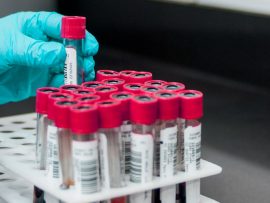Abstract Introduction In the postoperative intensive care setting after cardiac surgery with cardiopulmonary bypass (CPB), particularly in patients requiring continued anticoagulation for prosthetic devices such as mechanical valves or extracorporeal..
Read MoreAbstract Background Cardiac surgery patients are at increased risk for venous thromboembolism (VTE). Prevention is the most critical strategy to reduce VTE-associated morbidity and death. However, there is a lack..
Read MoreAbstract Objective The initiation of extracorporeal membrane oxygenation (ECMO) triggers complex coagulation processes necessitating systemic anticoagulation. Therefore, anticoagulation monitoring is crucial to avoid adverse events such as thrombosis and hemorrhage...
Read MoreAbstract Background The presence of dextran sulfate (DS) in reagents and the type of blood collection tube (citrate/citrated-theophylline-adenosine-dipyridamole [CTAD]) can lead to discrepancies between unfractionated heparin (UFH) anti-Xa levels. Objectives ..
Read MoreAbstract Unfractionated heparin (UFH) is the most used anticoagulant in patients receiving veno-venous extracorporeal membrane oxygenation (VV-ECMO). Its therapeutic levels are monitored using activated partial thromboplastin time ratio (aPTTr) or..
Read MoreAbstract OBJECTIVES: To determine the concordance between activated partial thromboplastin time (aPTT) and anti-factor-Xa (anti-Xa) in adults undergoing extracorporeal membrane oxygenation (ECMO) and to identify the factors associated with discordant..
Read MoreAbstract Background Hemorrhagic events remain a major concern in patients under extracorporeal membrane oxygenation (ECMO) support. We tested the association between anticoagulation levels and hemorrhagic events under ECMO using anti-Xa..
Read MoreObjective Adequate , measured using (ACT), is important during vascular and cardiac surgeries. Unfractionated heparin is the most common used. The purpose of this analysis was to compare the i-STAT ACT (iACT) to..
Read More






